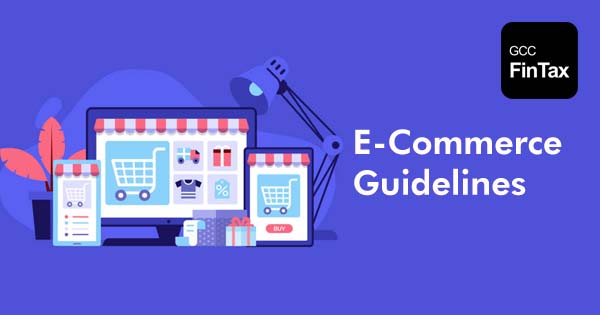
The rise of e-commerce has radically altered the worldwide retail market. However, this global trend, that has changed the dynamics of buyer behavior, as well as, business models in the retail, is relatively unexplored in the Middle East as well as represents a huge opportunity for players in the industry[1].
Primary drivers of the e-commerce expansion in the Middle East, particularly in the Gulf, might be a high spending possibility (due to the elevated per capita income), advanced transportation logistics networks, increasing internet penetration levels, as well as an increasing tech-savvy younger population. Owing to the existence of only a few players, the industry is an appealing destination for the e-commerce investment. With ease in the market barriers-improved infrastructure, easier license acquisition, as well as improved warehouse management-and more investment possibilities, the state's e-commerce market appears destined for strong growth1.
ZATCA issues a VAT guideline for the e-commerce. ZATCA has issued a Value Added Tax guideline for the e-commerce. Currently, the guideline is only viewable in Arabic. The purpose of the guideline is to provide insight to businesses associated with e-commerce in KSA about the Value-Added Tax rules that apply to their transactions. It involves specifying the Value-Added Tax treatment, the place of supply, as well as responsibility for the Value-Added Tax on the e-commerce sales made to the KSA customers. Businesses engaged in the e-commerce in the KSA must familiarize themselves with the guidelines to ascertain if they are accurately accounting for Value-Added Tax on their transactions[2].
Because there are no major free zones in Saudi Arabia, customs and VAT procedures are simpler than those in the UAE.
ZATCA investigated more business models as compared to the UAE.
E-commerce presents multiple difficulties to the legal practitioners as well as, businesses worldwide, and the implementation of Value Added Tax in the United Arab Emirates as well as the Kingdom of Saudi Arabia has added a layer of difficulty that all the stakeholders should be aware of. Two of the most common Value-Added Tax problems that emerge on the supply of the goods and services in the sector of e-commerce are: where the supply is taxable, and who must be accountable for the Value-Added Tax on supply[4].
It is critical for businesses to determine the correct VAT treatment of their supplies and to meet all of their obligations. It thus contains, but is not constrained to, determining if the supplies are already in the essence of the goods or the services; the supply's location; the presence of a residence place; any zero rate treatment application; the retrieval of input VAT; as well as registration and other compliance requirements4.
In 2017, Amazon purchased Dubai-based company known as Souq.com, that had more than 50 million customers as well as processes in all GCC member states, establishing itself to be a major e-commerce player in the market. With Amazon Prime in position, the company wants to attract further customers in the future. Additionally, later in 2017, Amazon made an announcement of the opening of its AWS Data Center in Bahrain as component of its regional market expansion strategy. Noon.com debuted in October 2017 like a regional competitor to Amazon. Mohamed Alabbar, the Emaar's chairman, founded the $1 billion platform of e-commerce based in Saudi Arabia. Before the start of Noon.com, a tech fund led by Mohamed Alabbar acquired UAE-based JadoPado.com in May 20171.
According to the guidelines for value added tax (VAT) registration and payment for online and e-commerce transactions and activities, online enterprises must register for Value-Added Tax if their annual revenue surpasses SAR 375,000. Value-Added Tax registration is not required if annual sales are between SAR 187,500 to 375,000. Online stores are described like any digital platform to use for e-commerce operations, which involves aspects on Instagram, Whatsapp, Facebook, as well as LinkedIn, among many other platforms[5].
In the previous few years, market of e-commerce has shown huge expansion due to changing consumer behavior. There are a lot of opportunities for the stakeholders to work together and advance their businesses through e-commerce. Government knows the significance of e-commerce in gaining their national goals and are taking relevant steps accordingly. For being at forefront of such revolution, stakeholders must adjust to changing dynamics, both economic and consumption. The success is related to awareness among the consumers, logistics ecosystem, as well as, connectivity infrastructure.
Disclaimer: Content posted is for informational & knowledge sharing purposes only, and is not intended to be a substitute for professional advice related to tax, finance or accounting. The view/interpretation of the publisher is based on the available Law, guidelines and information. Each reader should take due professional care before you act after reading the contents of that article/post. No warranty whatsoever is made that any of the articles are accurate and is not intended to provide, and should not be relied on for tax or accounting advice.
You can access Law including Guidelines, Cabinet & FTA Decisions, Public Clarifications, Forms, Business Bulletins for all taxes (Vat, Excise, Customs, Corporate Tax, Transfer Pricing) for all GCC Countries in the Law Section of GCC FinTax